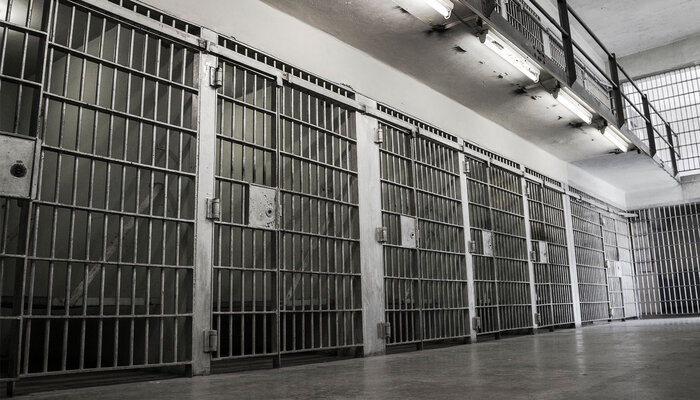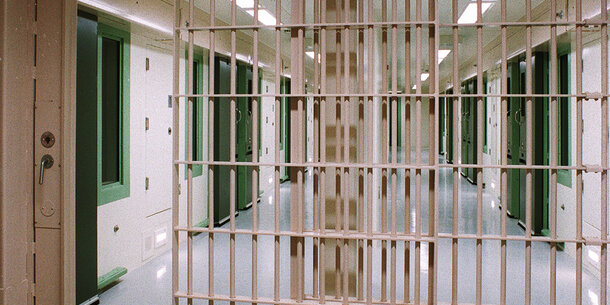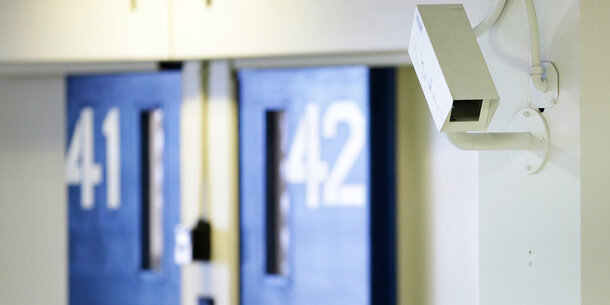Inhumane conditions in prisons and jails across the country are being driven by overcrowded facilities, failing infrastructure, and inadequate staffing. The Department of Justice is taking a historic step to address these long-running issues, with plans to award significant funding for initiatives that seek to improve life behind bars and change the country’s corrections culture
Many U.S. prisons are old and deteriorating, and dozens of prisons in the South lack air conditioning despite rising temperatures in the summer. Conditions behind bars are so devastating for so many that the Department of Justice is conducting investigations and attempting to enforce consent decrees or settlement agreements in dozens of cases related to constitutional rights violations in prisons, jails, and juvenile detention facilities across the country. Corrections and facility leaders want to make improvements and must balance competing priorities, finite resources, and political landscapes to do so.
Meanwhile, there are critically low numbers of correctional staff working in prisons, as a staffing shortage that preceded the Covid-19 pandemic has reached a crisis point. As of September 2022, the Federal Bureau of Prisons reported a correctional officer vacancy rate of 21 percent. Some states are in even more dire straits, with vacancy rates of as high as 50 percent in Georgia and 30 percent in Texas. One factor driving this shortage is the poor and stressful working conditions correctional officers face day in and day out. Research on the impacts of working in prison indicates that corrections officers suffer from post-traumatic stress syndrome and commit suicide at rates far higher than law enforcement staff in other agencies and those in the military where the crisis is more commonly recognized.
To help ameliorate the sometimes harsh and inhumane conditions in the country’s more than 5,000 prisons and jails, the Justice Department is awarding $10 million for projects that aim to transform prison cultures, climates, and spaces; research and evaluate correctional culture and climate; and research and evaluate jails. Another $8 million will support a partnership between the Federal Bureau of Prisons and the National Institute of Justice (NIJ) to invest in research that will inform how federal prisons can better reduce the use of restrictive housing. The Bureau of Justice Assistance, an arm of the DOJ that provides grant funding and guidance to support state, local, and tribal justice strategies, and the National Institute of Corrections (NIC) also launched a Jails and Justice Support Center in November, which assists jails in creating safe, humane, and effective environments for incarcerated individuals, staff, and visitors.
These multiple funding streams are significant and unprecedented. While the DOJ has sought to drive change behind bars — for instance, by continuing to support the reduction of solitary confinement in state prisons or supporting attempts to prevent, detect, and respond to sexual abuse in correctional facilities — none of its past efforts have taken a root and branch approach to transforming the culture of correctional practice nationwide and at the local, state, and federal levels.
Two funding streams will support the DOJ’s new grant programs. First, BJA is dispensing up to $3.5 million in awards to support prisons and state correctional agencies that are committed to reimagining their “cultures, climates, and spaces” to create safer and more humane environments for both staff and residents. The funding also supports better ways to recruit and retain staff and improve how people released from prisons rejoin their communities.
Second, in addition to its historic funding to study solitary confinement in federal prisons, NIJ is awarding more than $1.6 million to improve the body of empirical knowledge on local jails to better guide the development of policies and to improve outcomes for people confined to jails, as well as for their families and communities. The institute is also funding rigorous research projects up to $3.5 million to improve our collective understanding of the impact of culture on corrections agencies to create humane spaces for both staff and those who are incarcerated.
The DOJ’s actions coincide with a broader trend of rethinking the U.S. approach to incarceration. Over the past decade, a steady trickle of American criminal justice leaders has traveled to Europe — primarily Germany, the Netherlands, and Scandinavia — to learn about their humanistic approaches to criminal justice and imprisonment. This helped seed a wide variety of home-grown initiatives seeking to adopt a more humane and rehabilitation-focused model in the United States. And some American jurisdictions have initiated their own culture reform changes despite dwindling budgets and no resources to travel to Europe.
In fact, earlier this year, Assistant Attorney General Amy Solomon and NIJ Director Nancy La Vigne visited an innovative housing unit at the Turbeville Correctional Institute in South Carolina, which was designed based on the Vera Institute of Justice and the MILPA Collective’s Restoring Promise model, which applies German and Norwegian prison practices to change the corrections culture for both incarcerated people and staff. Restoring Promise units connect young adults with older mentors serving lengthy prison sentences. Those in the units receive training in life skills, financial literacy, and conflict mediation to assist their transitions into their communities upon release from prison.
This culture change works. The results of a randomized controlled trial — funded by NIJ — conducted in South Carolina prisons confirm that Restoring Promise’s approach to culture change significantly reduces prison violence and the use of restrictive housing. The study found that unit residents were 73 percent less likely to be convicted of a violent infraction and 83 percent less likely to be put in restrictive housing during their first year of participation.
At the Brennan Center, we are studying this emerging field of correctional reform and will be publishing a report detailing groundbreaking prison reform projects that are directly or indirectly inspired by Northern Europe’s dignity-first approach to incarceration. Our team has spent the last year visiting facilities and programs that are committed to transforming outcomes for those in their care and for their staff. This year, we visited Washington State, Oregon, and North Dakota to learn about the work of Amend, a nonprofit organization that brings international best practices in public health to change the culture in U.S. prisons. We also visited programs and met with correctional leadership, staff, and incarcerated people in Connecticut, Florida, Indiana, Maine, and Pennsylvania.
By implementing a more humane approach to imprisonment, American prisons and jails can become safer for those who are incarcerated or work there. If we care about creating safe communities, we must ensure that people behind bars are treated with respect and are provided with better opportunities to learn skills that will help them find jobs. Solutions like these will translate into their ultimately becoming better neighbors when they are released, and our communities will benefit.
The Brennan Center recognizes the importance of highlighting the innovative work happening in the field. What’s more, the DOJ’s investment signifies an acknowledgment of the need to foster novel solutions to our broken corrections system. By focusing on not only the benefits of these initiatives but also the related opportunities and challenges, we hope to provide new, sustainable, and scalable solutions that jurisdictions can adopt.




